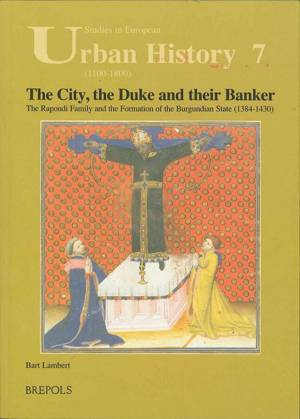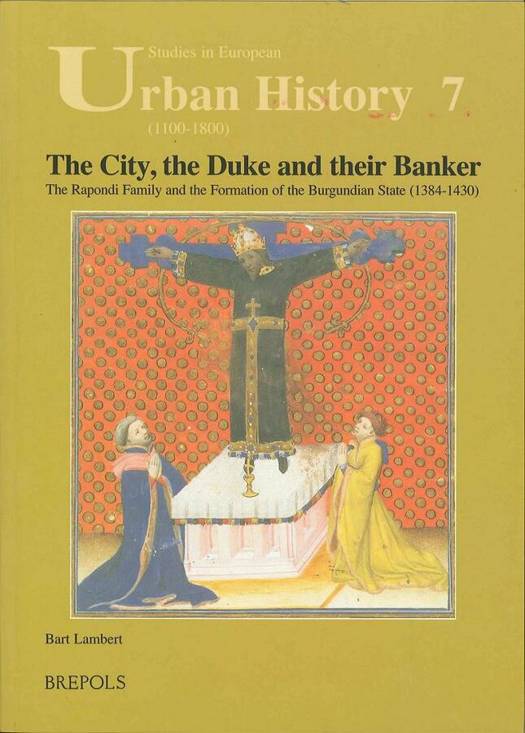
- Retrait gratuit dans votre magasin Club
- 7.000.000 titres dans notre catalogue
- Payer en toute sécurité
- Toujours un magasin près de chez vous
- Retrait gratuit dans votre magasin Club
- 7.000.0000 titres dans notre catalogue
- Payer en toute sécurité
- Toujours un magasin près de chez vous
The City, the Duke and Their Banker
The Rapondi Family and the Formation of the Burgundian State (1384-1430)
Bart Lambert
Livre broché | Anglais
63,60 €
+ 127 points
Description
During the second half of the fourteenth and the first half of the fifteenth century, it was particularly hazardous for medieval merchants to invest in government finance. The 'certainty of uncertainty' involved in dealing with princes proved disastrous for innumerable businesses, whether they were modest one-man firms or colossal 'super companies'. Yet, in this same period, the Rapondi, a family active in Bruges but originating from the Italian city of Lucca, achieved a career of more than thirty years in the money-lending business, ending with encomiums of princely praise instead of a bankruptcy. This book explains this remarkable achievement, not with a conventional focus on the individuals who agreed the loans and made up the bills, but by linking their work to the phenomenon that dominated the social and political scene of the Low Countries at the time: the formation of the Burgundian state. In the context of the politics of centralization conducted by the Burgundian dukes and the resistance of the Flemish cities the success story of the Rapondi can be understood. The Duke, the City and their Banker analyses how the firm first engaged in this interaction, how it was able to maintain its position while others failed and how these relations came to an end. While the emphasis of the book lies on the Rapondis' activities in Bruges, the meeting-place of international trade and finance in the fourteenth and fifteenth century, it also offers new insights into other important episodes of this fascinating period, including the Great Western Schism that divided the papacy, the continuing hostilities between England and France and the internal French conflict between Bourguignons and Armagnacs. In doing so, The Duke, the City and their Banker shows how an Italian merchant family was able to shape late medieval economic and political history. The master's thesis on which this book is based was awarded with the Dexia Prize for History 2005
Spécifications
Parties prenantes
- Auteur(s) :
- Editeur:
Contenu
- Nombre de pages :
- 229
- Langue:
- Anglais
Caractéristiques
- EAN:
- 9782503520254
- Date de parution :
- 28-06-06
- Format:
- Livre broché
- Format numérique:
- Trade paperback (VS)
- Dimensions :
- 182 mm x 255 mm
- Poids :
- 512 g

Les avis
Nous publions uniquement les avis qui respectent les conditions requises. Consultez nos conditions pour les avis.






